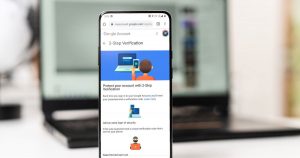Even founder Daniel Gross has a hard time explaining Pioneer. Over the course of one phone call, he compared it to Fortnite Battle Royale, Airbnb, Google, a sci-fi novel, a human accelerator, and an Ivy League campus.
Gross launched the project he claims will change the world in August 2018. Then, he described Pioneer as a bias-free search engine for human ingenuity. In newspapers, blog posts, and on television, Gross said the fund/tournament was designed to identify “lost Einsteins”—hidden geniuses with the potential to effect change—at an early stage using software and put them on the path to greatness.
Since then, tens of thousands of people from around the globe have entered Pioneer’s eponymous tournament—a convoluted, semi-anonymous online competition that uses software and game mechanics like points, quests, and leaderboards to quantify participants’ real-world productivity and incentivize behaviors Gross and his team believe are key to success. Of those, 67 participants have “won,” earning the title of Pioneer and prizes including cash, cryptocurrency, cloud computing credits, a flight to Silicon Valley, mentorship opportunities, and, supposedly, the path to world-changing genius.
To get there, they had to endure IQ tests, fake-outs, a search for the price of Mexican agave, ciphers, and demands to use more GIFs in professional emails. Pioneer distills and concentrates some of the best and worst elements of Silicon Valley into a game with real consequences: constant demand for more hustle and productivity, fierce competition, hype, and a lack of awareness of the toll on participants.
In large part, Pioneer reflects Gross’ personal experiences and interests. At age 18, he was accepted into the Y Combinator incubator, leading him from an Israeli military camp to Silicon Valley. There he created a social search startup called Cue, which was acquired by Apple for its predictive search capabilities in 2013. Early backers of Pioneer include payment processing firm Stripe and venture capitalist Marc Andreessen.
Gross is admittedly obsessed with gamification—the dopamine-inducing mechanics like point totals and achievements that lure users back to videogames and social media. He has a Google Scholar Alert for the term and lauds its drug-like potency in public and private. “Gamification and points systems simplify the world,” he says. “They give people focus.”
He says he appreciates the dangers but shrugs off apprehension about the ill effects of gamification and the quest for attention on sites like Facebook, Twitter, and YouTube. Asked whether Pioneer has worked with researchers who study gamification and its ethical implications, Gross chuckles. Sure, he reads academic studies, he says, but for now he and the company must focus on ensuring its existence and expansion.
“It’s currently a giant sinkhole of money,” Gross adds. “But I hope it one day makes money.”
That hope rests on the future market value of the tournament winners, dubbed Pioneers. In exchange for the money and other perks, winners agree to give Pioneer the right to invest up to $100,000 in any company they create from their project.
Some of the ideas seem far-fetched. A July livestreamed presentation of winning projects included a plan to tackle global poverty by building an ecosystem for charter cities, an MRI-like brain scanner costing less than 1 percent of today’s models, and a crypto esports league.
Pioneer Justin Zheng presenting his team’s idea for an esports league at the July 31 Pioneer Livestream.
Photograph: WIRED via PioneerWeb designer Ryan Bell discovered Pioneer on YouTube, through a Bloomberg TV interview of Gross in August 2018. The Pioneer founder described the tournament: Participants start with a project—an app, startup idea, product, research endeavor, cryptocurrency, or something else—then submit weekly progress updates detailing their productivity.
The key to Pioneer, as Gross portrays it, is feedback from other participants—in the form of scores, of course—on those weekly updates. “Instead of having five or six people review all of your work, which may have biases, we have the community—the other prospective applicants—vote on whether they find your work interesting or ambitious,” Gross explained in the video, though the “community” does not actually determine the winners. “We think that the power of crowdsourcing has a tremendous role to play in highlighting people from unrepresented or more diverse backgrounds.”
The idea of a competition for entrepreneurs excited Bell. The cash prize helped too. A freelancer, he had spent several months mulling the idea of a peer-to-peer network for content creators—kind of like Patreon, but using BitTorrent and Ethereum. But he hadn’t yet found the motivation to start working on it. “This is the perfect excuse to see if I can put this together and then push it onto this platform,” Bell recalls thinking. He signed up for the inaugural round of Pioneer.
To enter, participants must summarize their project in fewer than 140 characters—half the length of a tweet—and note whether it could one day become a company, nonprofit, “critically acclaimed research,” or “iconic art or media.”
Hit Enter and the tournament begins. New players are taken immediately to a bright yellow screen that looks like a gaming interface. On the left is a series of “quests” the player can complete to earn points; on the right, a scoreboard showing their rank. The top of the page features a progress bar detailing their status on the path to Pioneer. There’s also a live countdown clock showing the time remaining for the weekly status update.
The Pioneer dashboard.
Photograph: WIRED via PioneerBell found the setup perplexing. “You’d have all these little prompts, like, ‘Did you feel that you were very productive this week?’” he says. “And you’d be, like: ‘Of course. I was extremely productive this week. I got so much more done than all of my competitors did.’”
After submitting their own update, participants must rank others. They’re presented updates from two anonymous users and asked to pick which made more progress. Bell says he was struck by the variety of projects he reviewed and how many seemed unrealistic.
“It’s not a game where you’re showing your work or even allowing people to see or experience your work; they’re just having access to a written description of your work,” he says. “So the game is, can I create a paragraph of hypothetical progress that would be ranked higher by my competitors than another one that might be shown alongside it? And that’s maybe not the ideal game for what they’re trying to incentivize.”
One player, he recounts, claimed to be building a self-driving car that would surpass Tesla; others planned to write an adventure novel, develop a sort of fecal transplant, or deliver water to a rural African village. Bell appreciated the ambition but says the program’s focus on grandeur over feasibility made it difficult to judge other players’ projects.
Asked how Pioneer checks these self-reported progress updates, Gross replies that Pioneer is in part an effort to assess a person’s character online. “Maybe it’s not possible to suss out the fake,” he says. “The reality is that—like all companies—we are going to have some sort of abuse and fraud, but we have to keep it low.” He also says Pioneer has experts in various fields review players’ projects before they are extended the Pioneer offer.
One result: Players spend a lot of time on their weekly updates, sometimes at the cost of the projects themselves. “We didn’t make any business decisions based on what sounded good for Pioneer,” says Justin Zheng, a then-high-school student who started playing Pioneer, with a partner, at the same time as Bell. Their project was a private key for cryptocurrency using biometric authentication. “But we definitely would try to make our updates more interesting [by] putting emojis to make it stand out, or make memes to get more votes.”
Bell tried to include a video in each update, which would take him days to complete: “Two or three days out of your week, you’re having to put this video together, which gets in the way of actually working.”
When it comes to grading others, players aren’t given any specific criteria. The system rewards people who choose projects that were ranked well by others. To test players’ judgment, Pioneer occasionally feeds them a fake contest, between a past winner and a project considered unimpressive.
The competition takes other odd turns. One involves quests for players, such as solving puzzles or taking a personality test.
Pioneer presents players with quests, tasks they can complete for points.
Photograph: WIRED via PioneerFor Anton Samoylov, a software engineer who’s been playing Pioneer since April, this was the most gripping aspect of the tournament. “I went crazy,” Samoylov recalls, laughing. “When I see points that I can earn and increase my position on the leaderboard, I can’t resist.
“I see I have, like, 1,300 points, and then I see a quest: Submit a one-minute video about yourself and your project and get another 50 points? Obviously, I’m going to do that,” he says. “Sign up for our Discord … channel and get another 25 points? Again, I will do that.”
The contest quickly consumed his life. Samoylov asserts that his obsession with points and standings made him more productive than he thought was possible. His desire to win motivated him to complete difficult tasks and set impressive goals, he says. Before Pioneer, his project—an app, which, like Pioneer, uses gamification tools to help users meet their goals—was little more than an idea. Pioneer helped him turn it into a reality. Now, the app is available on the Google Play store and has a few dozen users, he says.
But playing Pioneer has its costs, he says. Samoylov spends an hour or two each Monday ranking other players’ progress updates. He points out that the anticipation of feedback from other players and the pressure to maintain a high score stressed him out to the point where it affected his sleep. “It can be used as a motivation boost, but at the same time it has its costs in terms of stress, in terms of additional time spent … and also in terms of focus lost.”
On June 24, Samoylov received a notification that he—and 200-some others—had been added to level one of “the Pioneer Games.” Messages from Gross gave them their first challenge: determining current and historical daily agave prices in Mexico and recommending whether to buy or sell stock in the companies involved. In 19 hours.
Samoylov could not identify published prices or public future markets for agave in Mexico. He scoured the internet, reading articles on public forums, and emailed experts he thought could help. Others hunted down phone numbers for agave farmers in Mexico or emailed tequila producers and distributors, he says.
The final stage of the competition asked players to refer as many new users to Pioneer as possible. By this time, Samoylov had stumbled upon a tweet by Gross that described the Pioneer Games as a screener for applicants for a job on the company’s business operations team, which confused him.
Still, he finished the challenges. Samoylov’s team referred so many users to Pioneer that it accumulated 10 times as many points as any other team. But he never heard from anyone at Pioneer about a job, or what the game meant. Gross says the game was intended to be separate from the Pioneer competition and that the company is close to hiring the operations coordinator.
Samoylov kept playing Pioneer anyway. “It was the most productive time in my life,” he recalls. “And that’s amazing. But at the same time, Pioneer is not just about motivation and productivity and community—it’s also about being eligible to become the Pioneer.”
Becoming a Pioneer—winning—is not exactly as it appeared. Until July, Pioneer’s website said it was based on accumulating points; players who topped the global leaderboard three times would become Pioneers, it pledged.
Pioneer’s Leaderboard, showing rankings for players across the globe.
Photograph: WIRED via PioneerIn fact, winners are essentially chosen by Gross’ group of “experts.” Some players say this wasn’t made clear to them until recently.
In July, Samoylov published a Medium post criticizing the selection process. The post went viral among the Pioneer community. Shortly after, the description on Pioneer’s site changed: “Every week other participants and experts will give you feedback and points. The more progress you make, the higher your score will be. Experts periodically select new winners from the Top 50 on an ongoing basis.”
Gross says he changed the way Pioneers are selected in August in response to player feedback. “Games are more fun I think when they’re more transparent,” he adds.
Samoylov was crushed by the clarification, which he says runs counter to the tournament’s gamified, points-based ethos. He didn’t stop playing, though. “I realize that on the one hand I say that the game motivates me and on the other hand say that it doesn’t motivate me because I understand that it’s fake,” he says. “But the same goes for any game: You realize it’s fake, but it still may be interesting to play.”
After three months of playing, Justin Zheng was named a Pioneer in December. He said the most valuable prize wasn’t the money—his main reason for entering—but the access to a community of like-minded peers. “We’re in this Discord with all the rest of the winners where we can just give each other feedback, ask questions, and retweet each other’s stuff,” he says. The group talks weekly and met in person in San Francisco in early August.
After winning Pioneer, Zheng and his partner were accepted into Network Catalyst, an accelerator run by the venture firm Village Global. They were paired with a security expert who was supposed to help with their biometric encryption key idea. Zheng says the Network Catalyst expert immediately told them that the idea wouldn’t work, for security reasons. They’re now working on a crowdsourced esports league.
Bell played Pioneer—using his Ethereum-based peer-to-peer network for content creators—for several months before concluding it was a bust. He says he was grateful for the feedback from other players but couldn’t justify spending his weeks filling out progress reports for something that likely wouldn’t take off.
“Eventually you have to work on things that actually generate profit,” he acknowledges, laughing. “So I just got busier with other actual work.” In January, he launched his own social-media marketing firm.
Samoylov is still working on his Pioneer project, an app called Loresome—which, like Pioneer, uses game mechanics to help users reach their goals—despite his complaints about the selection process. He recently took a break to focus on quality improvements for the app. The work is vital to making the app work, he says, but is tedious and wouldn’t earn many points from weekly updates. So he sees no point in playing until it’s fixed.
“My sleep became better after I stopped playing,” Samoylov admits, but says he still plans on going back. “It does motivate me, that’s why.”
More Great WIRED Stories
- Jack Conte, Patreon, and the plight of the creative class
- A detox drug promises miracles—if it doesn’t kill you first
- Forget Mensa! All hail the low IQ
- How Apple Arcade will reshape mobile gaming
- Marketers wanted a new generation to target, hence Alphas
- 👁 How do machines learn? Plus, read the latest news on artificial intelligence
- 💻 Upgrade your work game with our Gear team’s favorite laptops, keyboards, typing alternatives, and noise-canceling headphones



